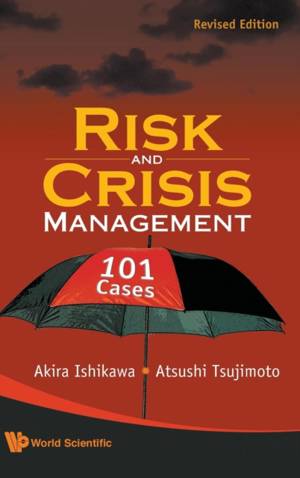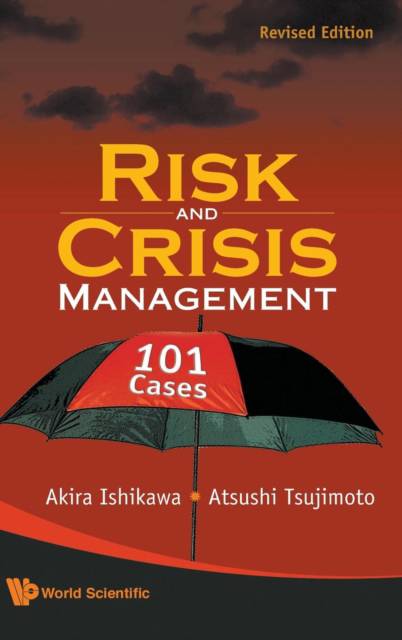
- Afhalen na 1 uur in een winkel met voorraad
- Gratis thuislevering in België vanaf € 30
- Ruim aanbod met 7 miljoen producten
- Afhalen na 1 uur in een winkel met voorraad
- Gratis thuislevering in België vanaf € 30
- Ruim aanbod met 7 miljoen producten
Zoeken
Risk and Crisis Management: 101 Cases (Revised Edition)
Akira Ishikawa, Atsushi Tsujimoto
Hardcover | Engels
€ 160,45
+ 320 punten
Omschrijving
Natural disasters, terrorist attacks, financial collapses, and other crisis situations have occupied public attention to an unprecedented degree in recent years. In the face of these events, the study of risk and crisis management is becoming more important than ever before. This book is a clear and comprehensive guide to the most common emergency situations of our day, giving succinct, practical advice on how best to avoid them if possible, how to minimize loss and damage once they have occurred, and how best to recover sustainably. The 101 cases presented here cover both natural and man-made disasters, drawing on recent and current case histories to propose workable solutions for governments, corporations and ordinary people facing extraordinary times.This revised and expanded edition of the authors' 1999 book, Survival -- Simulation of Risk and Crisis Management 69, is written in an accessible style and contains the latest research in the field. It will benefit laypeople, professionals, and academics alike. In particular, safety professionals, public management professionals, CEOs, CIOs, tertiary students and researchers will appreciate its pragmatic, vigilant approach to dealing with and recovering from natural and man-made disasters in the interest of long-term survival and sustainability.
Specificaties
Betrokkenen
- Auteur(s):
- Uitgeverij:
Inhoud
- Aantal bladzijden:
- 292
- Taal:
- Engels
Eigenschappen
- Productcode (EAN):
- 9789814273893
- Verschijningsdatum:
- 30/01/2010
- Uitvoering:
- Hardcover
- Formaat:
- Genaaid
- Afmetingen:
- 155 mm x 234 mm
- Gewicht:
- 589 g

Alleen bij Standaard Boekhandel
+ 320 punten op je klantenkaart van Standaard Boekhandel
Beoordelingen
We publiceren alleen reviews die voldoen aan de voorwaarden voor reviews. Bekijk onze voorwaarden voor reviews.











